The robotics industry is undergoing rapid transformation, driven by advances in artificial intelligence, automation, and human-machine collaboration.
According to McKinsey, the global robotics market is expected to grow from $45 billion in 2023 to over $370 billion by 2040, fueled by increasing demand across industries such as healthcare, logistics, agriculture, and manufacturing.
As technology becomes more intelligent and adaptable, a new generation of robotics startups is emerging to solve some of the world’s most pressing challenges—ranging from elder care and medical delivery to climate resilience, food sustainability, and public health.
This list features innovative robotics startups—primarily U.S.-based, with select global innovators—developing groundbreaking solutions with measurable environmental, social, and economic impact.
These companies span all stages of growth, from early-stage ventures to well-funded scale-ups, and represent the expanding role of robotics in building a safer, more efficient, and more inclusive future.
Zipline – Drones Delivering Life-Saving Supplies in Minutes
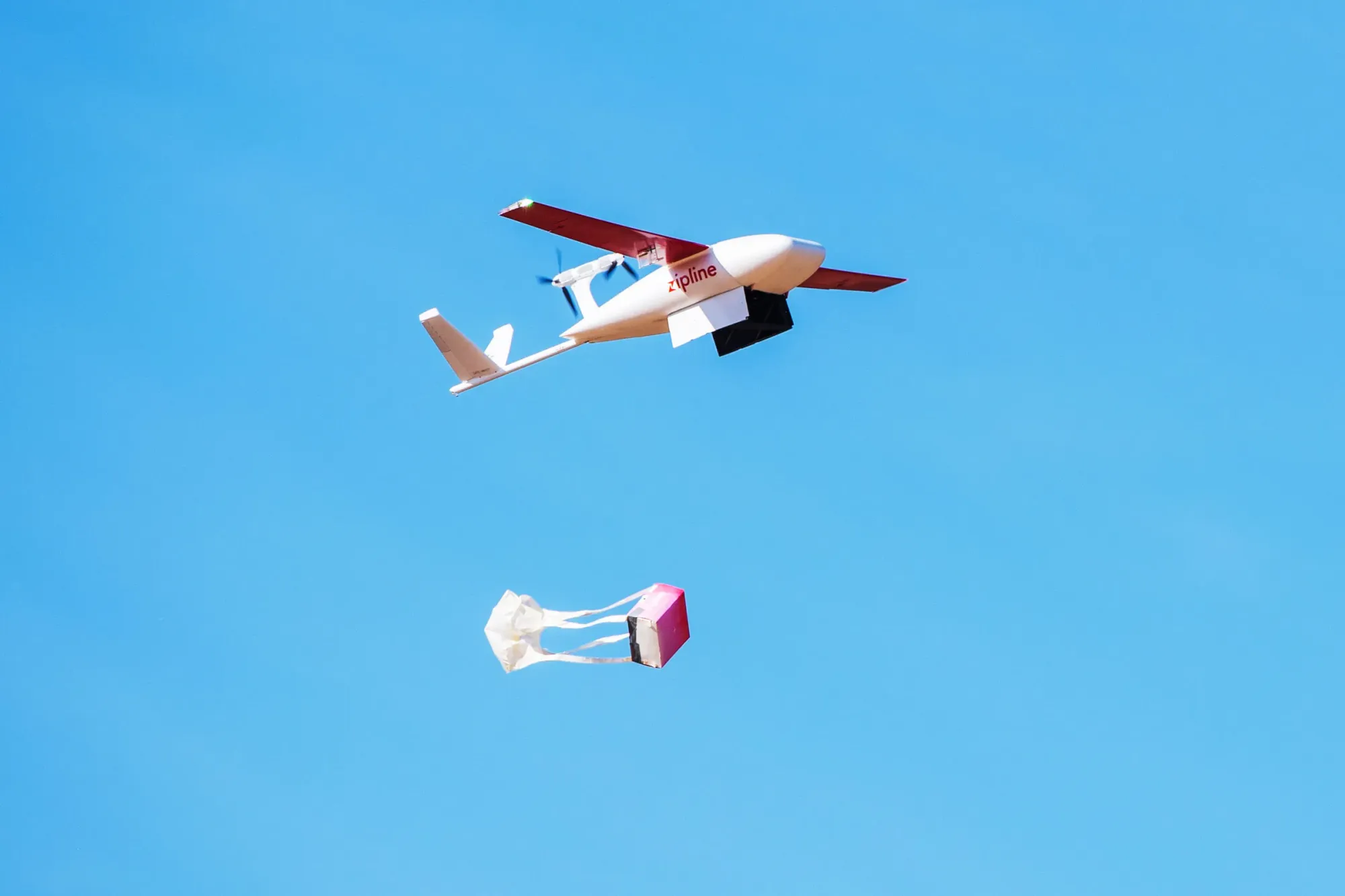
Headquarters: South San Francisco, CA, USA
Founded: 2014
Impact Focus: Healthcare access, emergency logistics
Zipline operates autonomous delivery drones that transport critical medical supplies (blood, vaccines, medications) to remote or underserved areas.
The company’s fixed-wing drones launch from distribution centers and drop payloads by parachute to clinics, dramatically reducing delivery times from hours (or days) to mere minutes.
First deployed in Rwanda, Zipline’s service has improved healthcare access in regions with impassable roads and poor infrastructure, ensuring that even rural clinics receive blood transfusions and vaccines on demand.
As of 2024, Zipline’s fleet has made over one million deliveries and flown more than 70 million autonomous miles, showcasing the scalability of its impact.
In Rwanda, over 75% of blood deliveries outside the capital are fulfilled by Zipline drones. By cutting delivery times and reaching areas conventional transport cannot, Zipline has helped lower maternal mortality and reduce stockouts of vital medical products in several countries.
This startup illustrates how combining robotics and aviation can save lives and build more resilient healthcare systems globally.
🔹 Top innovation: Fixed-wing autonomous drones that deliver medical supplies in under 30 minutes to remote and underserved areas.
Roam Robotics - Reinventing Human Possibilities
Headquarters: San Francisco, CA, USA
Founded: 2013
Impact Focus: Mobility assistance, wearable robotics, aging & rehabilitation
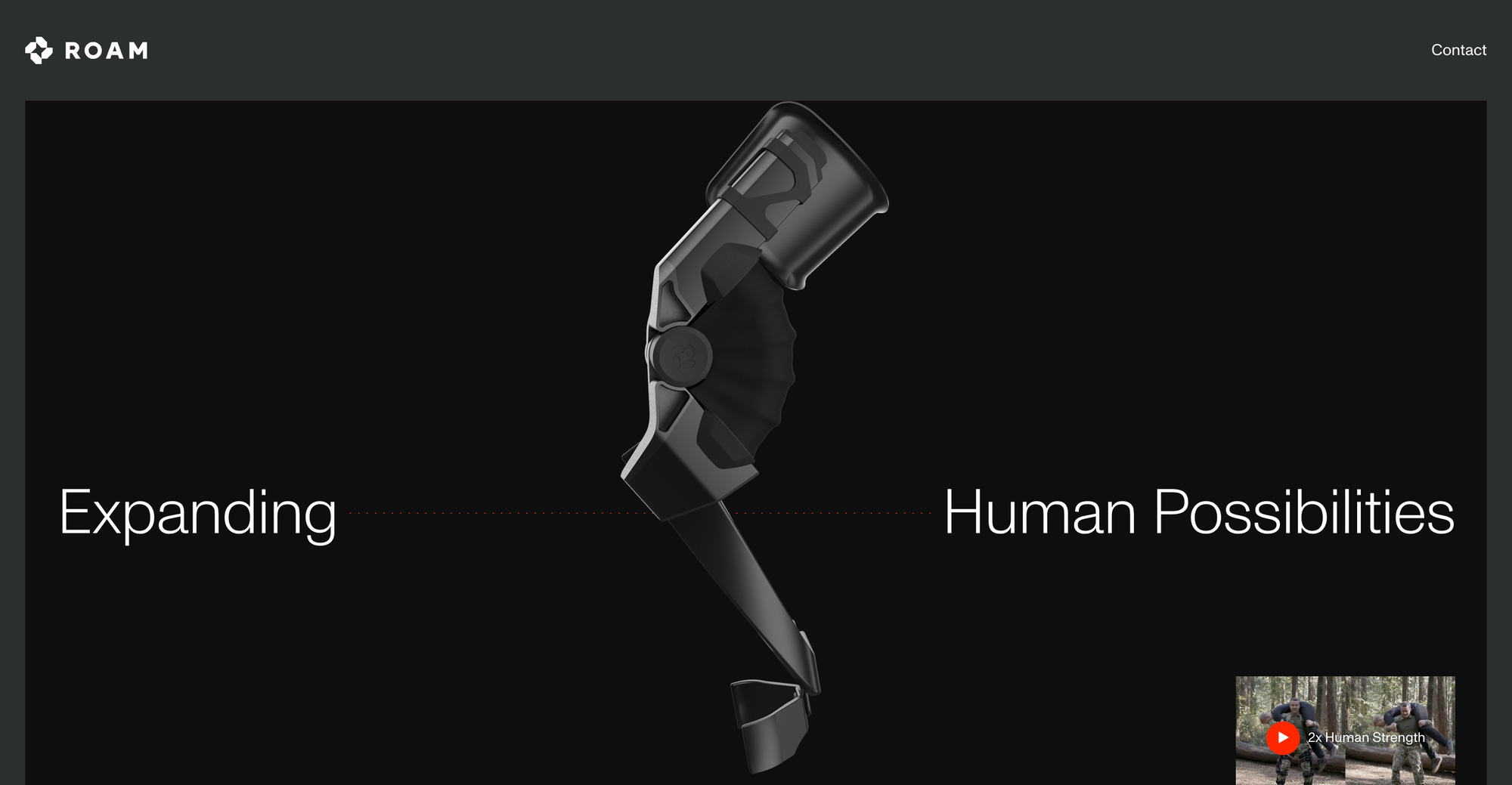
Roam Robotics develops lightweight, affordable exoskeletons designed to enhance human mobility—particularly for older adults and people with knee instability, arthritis, or neuromuscular conditions.
Their flagship product, the Roam Reboot, is a soft robotic knee orthosis that uses air-powered actuators and smart sensors to reduce joint load and improve confidence while walking.
Unlike heavy, rigid exosuits, Roam’s technology is designed for daily consumer use—it’s compact, battery-powered, and fits easily under clothing.
The company’s mission is to help millions of people maintain independence, reduce fall risk, and stay active longer, without requiring surgery or medication.
🔹 Top innovation: A soft exoskeleton with real-time motion detection that assists knee extension and reduces pain during movement.
Shark Robotics - Firefighting Robots and Beyond
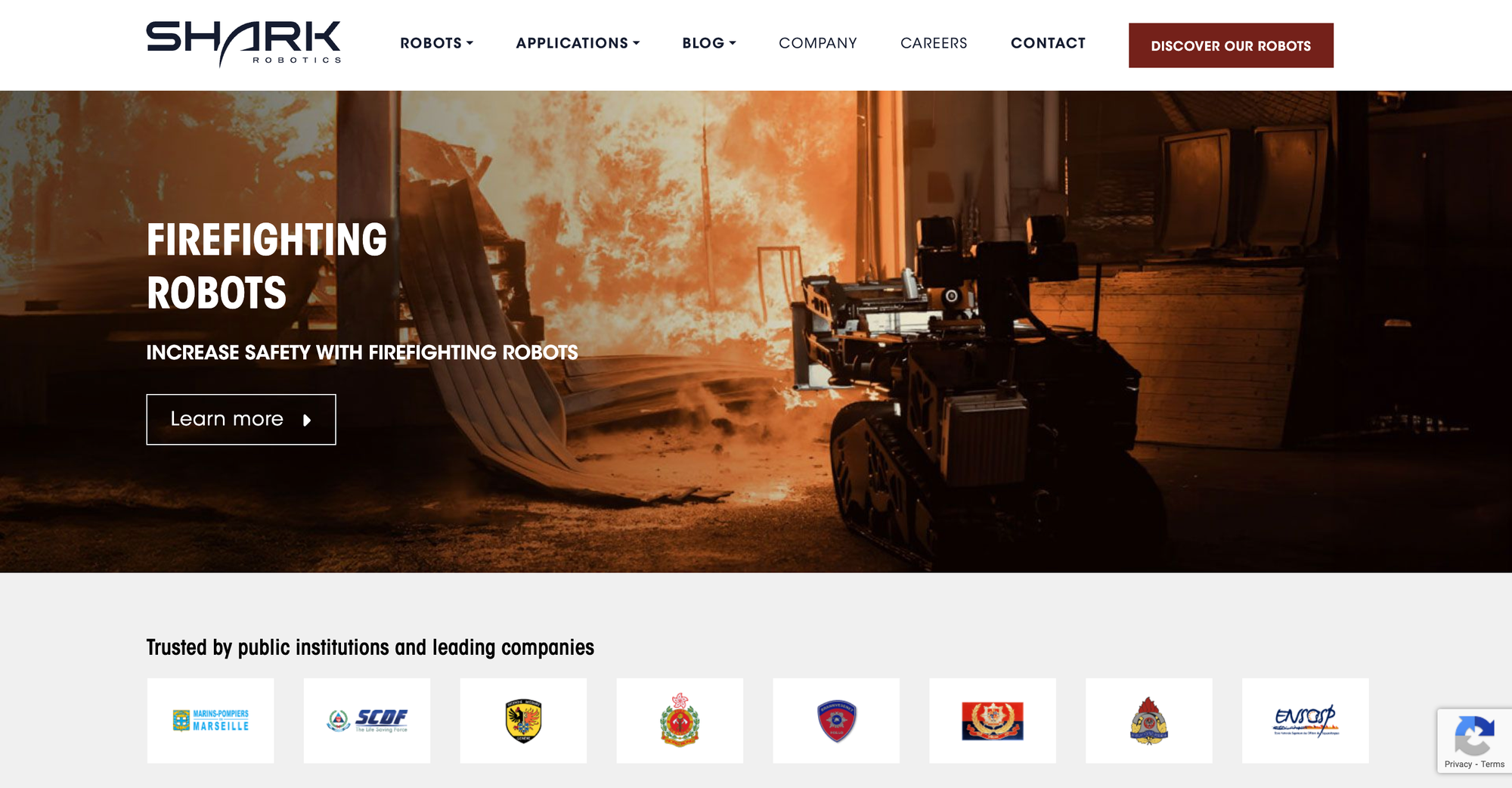
Headquarters: La Rochelle, France
Founded: 2016
Impact Focus: Disaster response, defense, and hazardous operations
Shark Robotics designs rugged, remote-controlled ground robots for firefighting, bomb disposal, and nuclear site inspection. Their Colossus robot supported efforts during the Notre-Dame cathedral fire, demonstrating real-world disaster response capabilities.
🔹 Top innovation: Firefighting robot with heat resistance up to 600°C, capable of autonomous navigation and water cannon operation in extreme conditions.
Causeartist BackOffice
Your Mission-Aligned Operations Team
From investor-ready financials to growth strategy, HR, compliance, and custom software—Causeartist BackOffice is your all-in-one operational partner. Built for impact startups, funds, and nonprofits, and powered by our experts.
Let us handle the back office—so you can stay focused on impacting the world.
AMP Robotics – AI Robots Turning Waste into Recycling Gold
Headquarters: Louisville, CO, USA
Founded: 2015
Impact Focus: Environmental sustainability, waste management
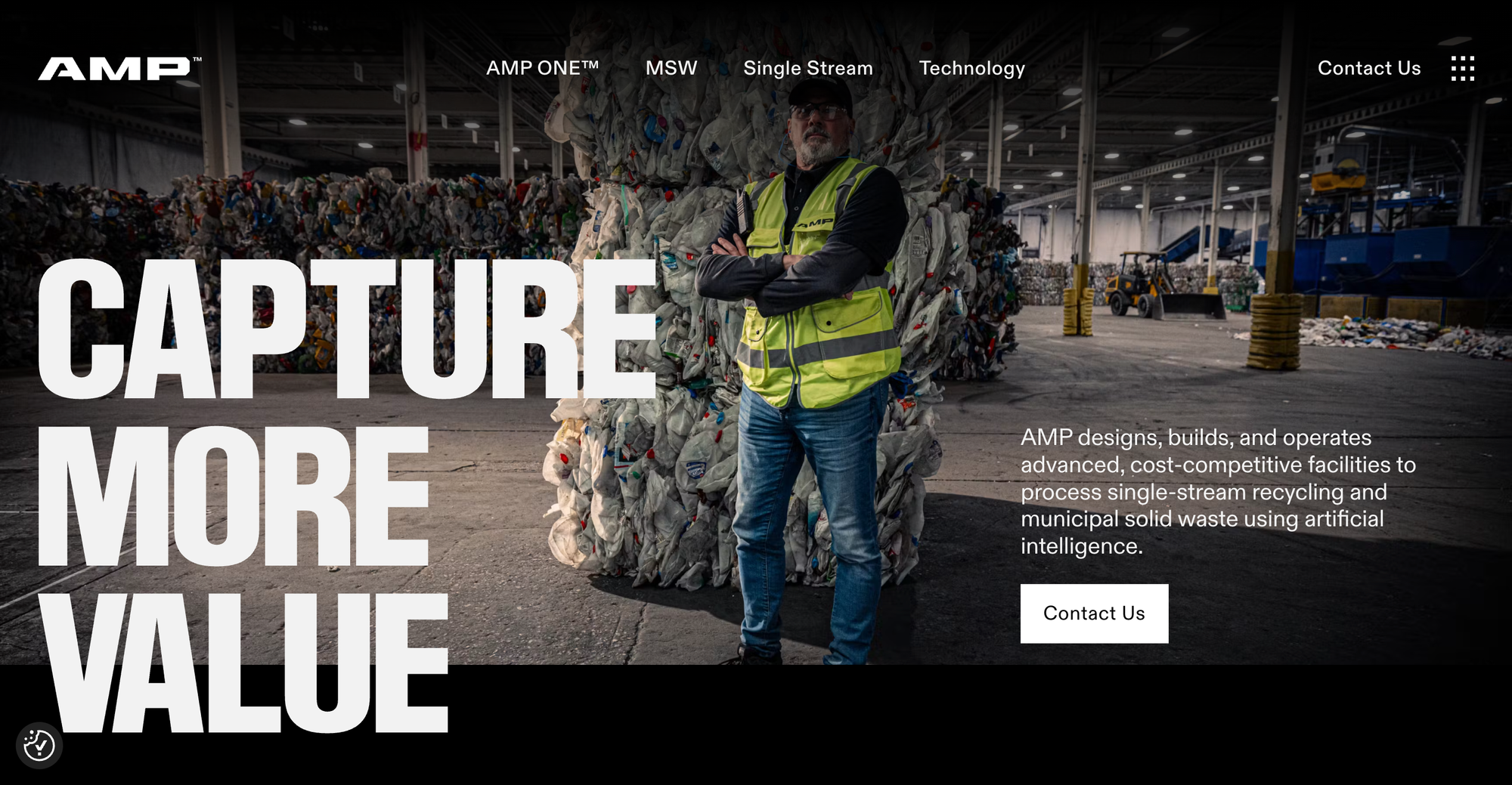
AMP Robotics is tackling the world’s waste and recycling challenge with intelligent robots that sort recyclable materials from trash.
This addresses a major bottleneck in recycling: manual sorting is slow, error-prone, and costly, leading to many recyclable items ending up in landfills.

AMP’s technology vastly increases efficiency – its AI platform has **identified over 150 billion pieces of material and sorted 2.4 million tons of recyclables to date.
Deployed in more than 80 recycling facilities across the U.S., AMP’s robots help divert huge volumes of waste from landfills.
For example, according to the company, its machines have already helped divert roughly half a million tons of recyclable material from landfills.
With a nationwide fleet of ~300 robots and growing, AMP is modernizing recycling infrastructure and moving the needle on sustainability.
Its systems enable recycling centers to run 24/7 with higher accuracy, capturing materials that would otherwise be missed, and ultimately aim to significantly boost recycling rates (which in the U.S. have stagnated below 32%).
By using robots to give our trash a second life, AMP Robotics is contributing to environmental protection and the circular economy.
🔹 Top innovation: AI-powered vision systems that accurately sort recyclables from mixed waste streams in real-time.
Hullbot - Underwater Robotic Systems
Headquarters: Sydney, Australia
Founded: 2019
Impact Focus: Marine sustainability, ocean robotics, emissions reduction
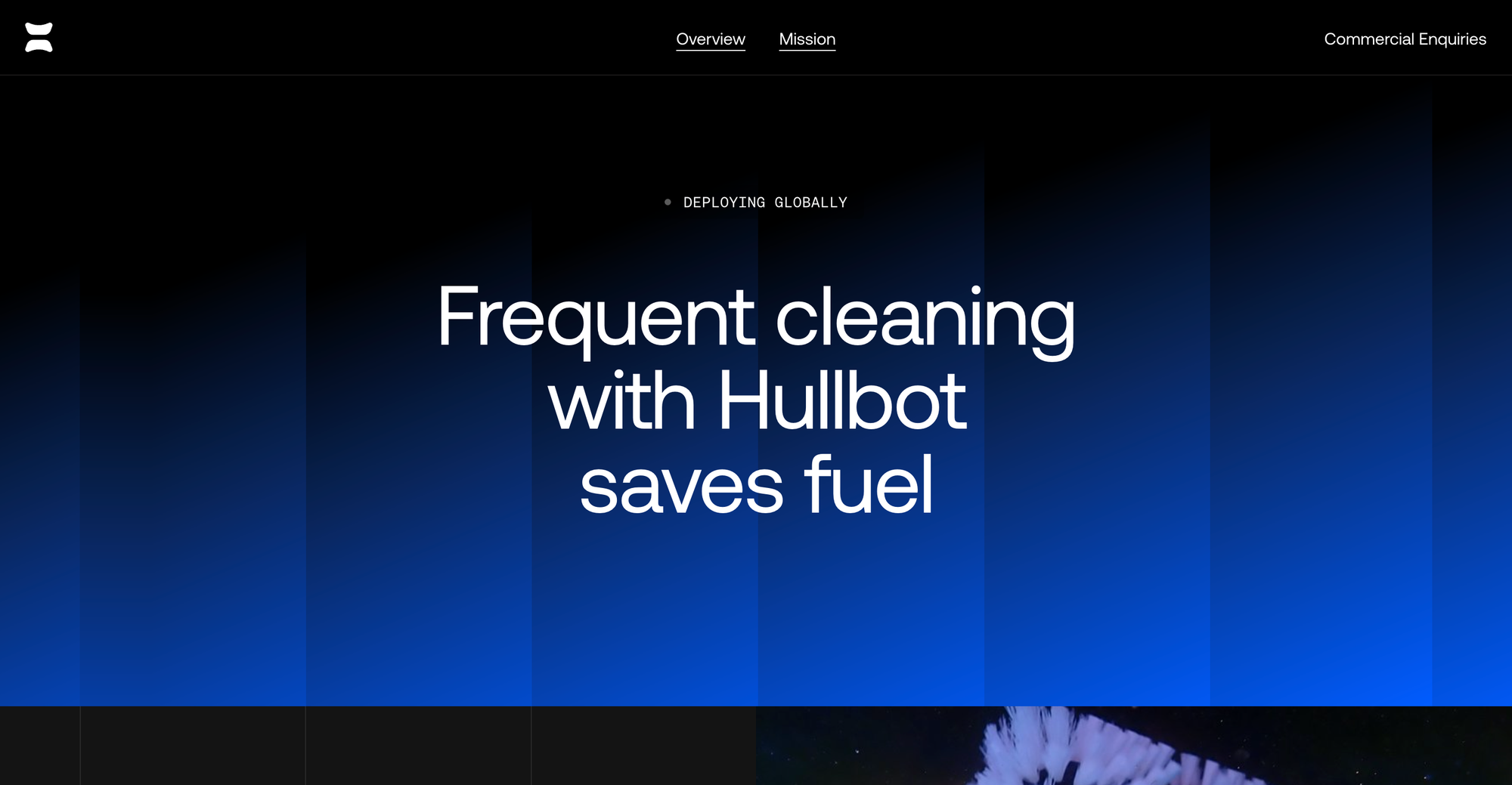
Hullbot is building underwater robotic systems that autonomously clean and inspect boat hulls, helping to prevent biofouling—an issue that causes increased drag, fuel consumption, and carbon emissions.
By keeping hulls clean without toxic chemicals or drydocking, Hullbot enables vessel owners to maintain peak efficiency while reducing their environmental footprint.
The startup’s robot operates autonomously, attaches magnetically to hulls, and uses soft brushes and precision navigation to clean without damaging sensitive coatings.
🔹 Top innovation: Autonomous, diver-free hull-cleaning robots that reduce marine fuel use and prevent the spread of invasive species.
Diligent Robotics – Hospital Helper Robot Easing Nurses’ Workload
Headquarters: Austin, TX, USA
Founded: 2017
Impact Focus: Healthcare (hospital efficiency, staff support)
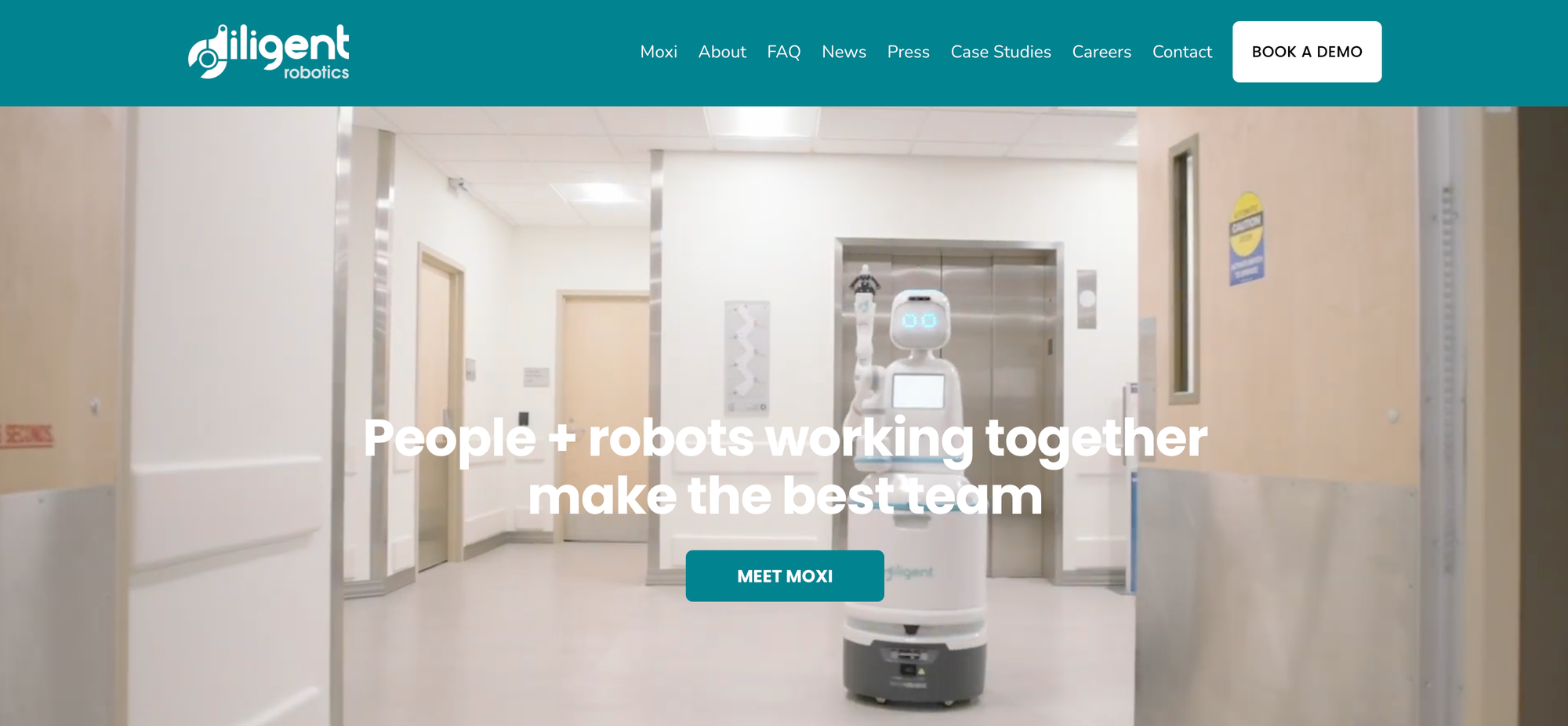
Diligent Robotics is the maker of Moxi, a socially intelligent service robot designed to assist hospital staff with routine, non-patient-facing tasks.
Resembling a wheeled tower with a robotic arm and a head-like screen, Moxi can autonomously navigate hallways, ride elevators, open doors, and deliver items like medications, lab samples, and supplies.
By taking over these logistical chores, Moxi frees up nurses and clinical staff to spend more time on direct patient care – helping to reduce burnout and labor shortages in healthcare.
As of 2023, the company reports that over 22 health systems (200+ hospitals) have deployed Moxi robots, and it aims to triple its footprint in the next two years.
With robots like Moxi working 24/7 on mundane tasks, hospitals can operate more efficiently and nurses can focus on what they do best – caring for patients. Diligent’s human-centric approach (Moxi has an LED face to appear friendly and takes selfies with staff) also shows how robots can integrate into clinical teams in a positive, non-threatening way.
🔹 Top innovation: ‘Moxi,’ a hospital robot with social intelligence and autonomous navigation for clinical support tasks.
Agility Robotics – Humanoid Robots Tackling Warehouse and Delivery Work
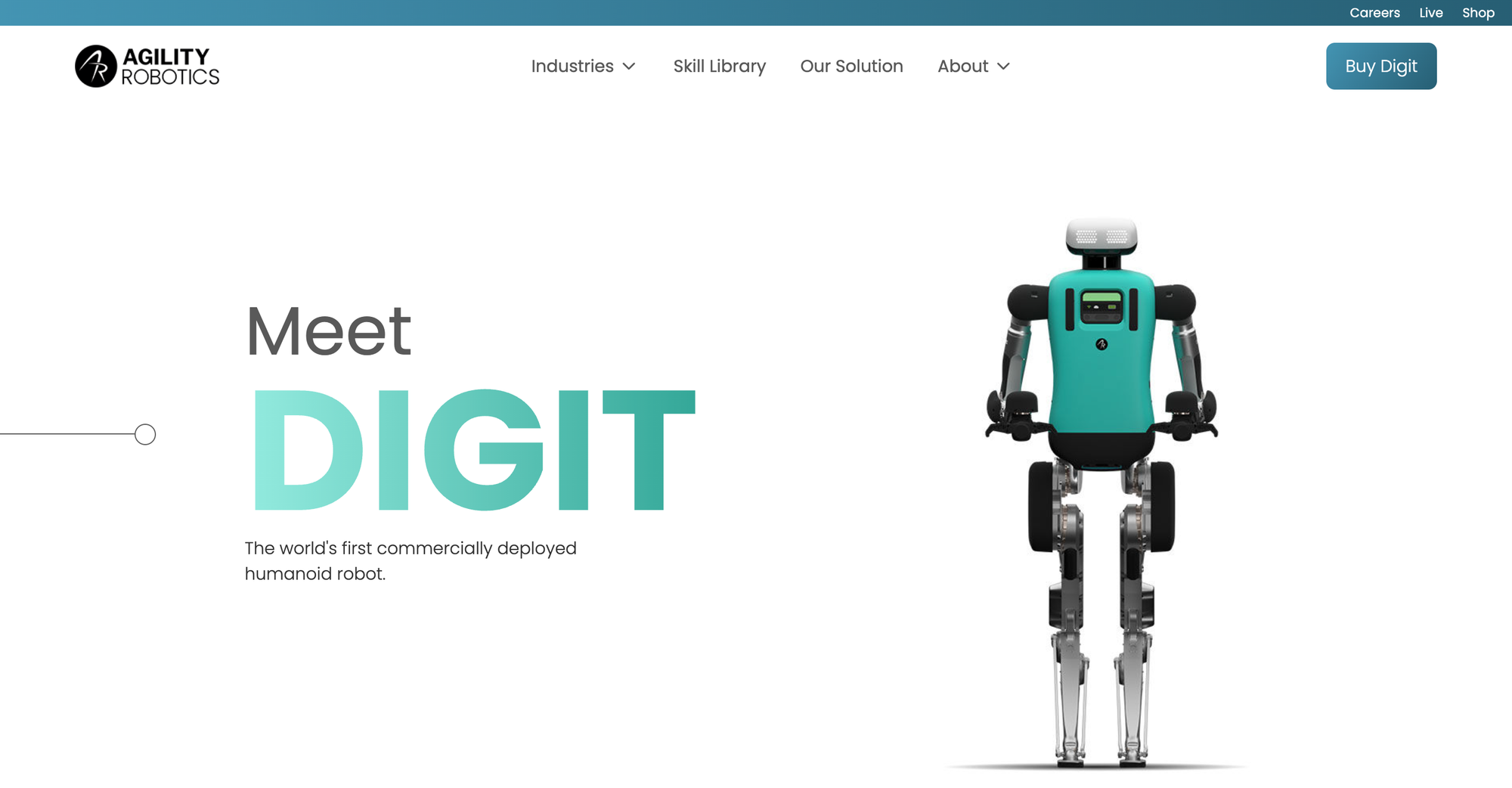
Headquarters: Corvallis, OR, USA
Founded: 2015
Impact Focus: Labor shortages, logistics efficiency
Agility Robotics is pioneering humanoid robots that could one day work alongside humans in factories, warehouses, and retail. Their bipedal robot, Digit, has two legs, arms, and a torso – giving it a human-like form factor designed to move through our world and perform various manual tasks.
Digit can lift and carry boxes, tote items on its arms, and navigate in spaces built for people. It also integrates advanced AI (including language models) that allow it to understand verbal instructions and respond, making it a versatile “robot worker”.
The company’s mission is to address labor shortages and take on dull, dangerous, or ergonomically challenging jobs (like repetitive lifting) that humans may prefer to avoid.
Agility has garnered major support – Amazon is testing Digit in its warehouses and invested in the company, and Agility is building a dedicated “RoboFab” factory in Oregon aimed at producing up to 10,000 Digits per year.
The potential impact is significant: humanoid robots could supplement the workforce in logistics, manufacturing, and even delivery (Agility’s earlier prototype worked with Ford to explore package delivery).
By enabling automation in jobs that previously required human mobility and dexterity, Agility Robotics hopes to boost productivity and free human workers for higher-level tasks.
While still in early commercialization, Digit’s progress – from pilot deployments to a planned mass-production – suggests a near future where humans and humanoid robots collaborate to keep supply chains moving and fill critical labor gaps.
🔹 Top innovation: ‘Digit,’ a bipedal humanoid robot capable of navigating human spaces and performing warehouse logistics tasks.
Nuro – Self-Driving Vehicles for Safer, Greener Local Deliveries
Headquarters: Mountain View, CA, USA
Founded: 2016
Impact Focus: Road safety, accessible local commerce, reduced emissions
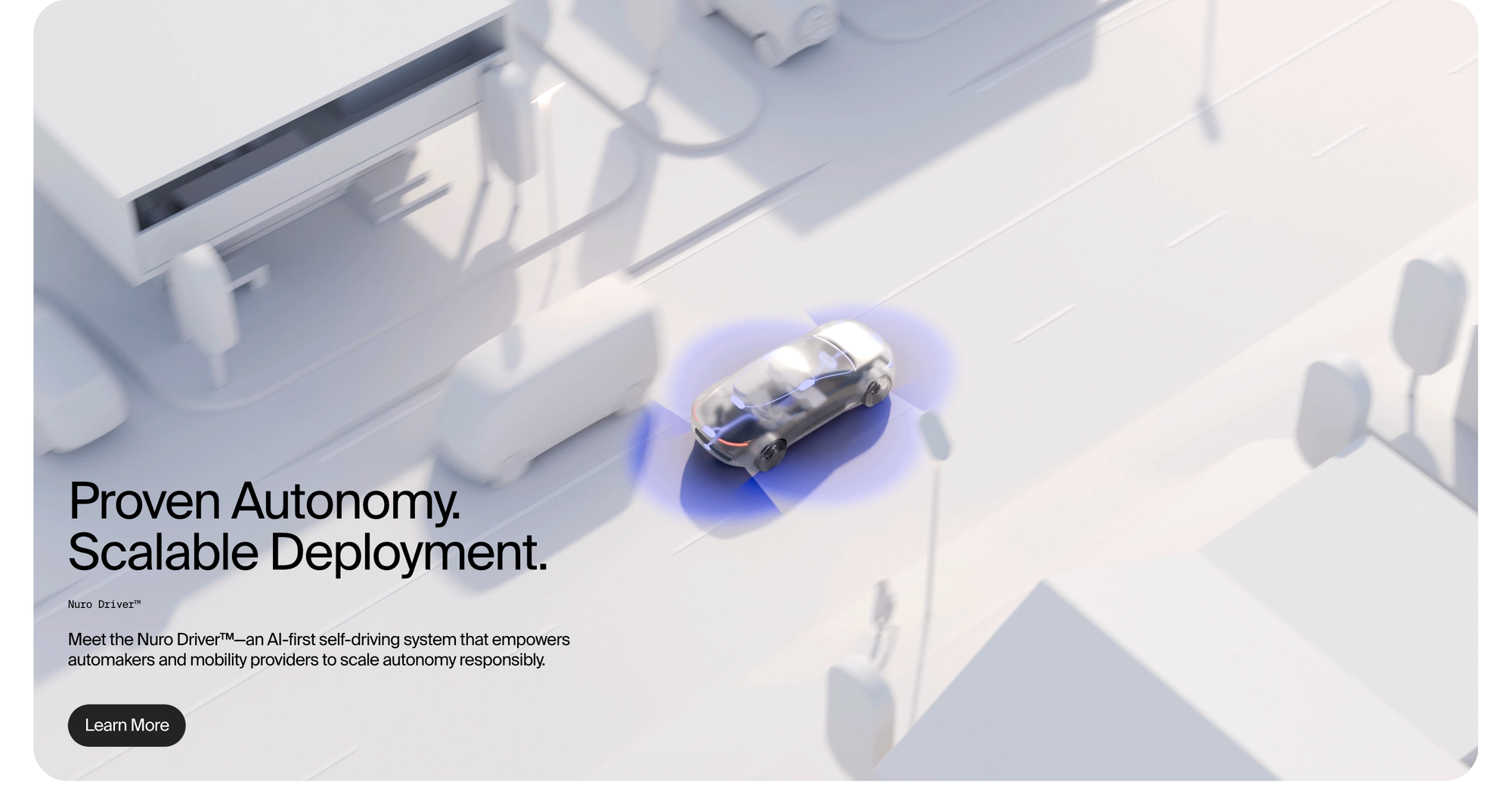
Nuro is a robotics startup focused on autonomous vehicles – not for carrying people, but for delivering goods. Nuro’s small electric delivery bots (resembling a mini car without seats) drive themselves on public roads to bring customers groceries, food, prescriptions, and other essentials.
By removing the driver and human passengers, Nuro’s vehicles are built purely for cargo and optimized for safety and efficiency: they’re lightweight, have no steering wheel or airbags, and prioritize avoiding harm to pedestrians and other road users.
In fact, Nuro was one of the first companies to receive a special federal exemption to operate vehicles without traditional controls like side mirrors, given its unique zero-occupant design and safety case. In operation, Nuro’s robots have an impressive safety record – they’ve driven over 1 million miles autonomously with no major incidents reported The Verge.
The societal benefits of Nuro’s model could be far-reaching: widespread adoption of autonomous delivery could mean fewer personal vehicle trips, reducing traffic congestion, and carbon emissions (Nuro’s bots are electric).
In recent news, the company announced that in 2026, in partnership with Lucid, it will launch the first-ever autonomous ride-hailing vehicle developed exclusively for the Uber platform will redefine how cities move.
It also makes deliveries more accessible and convenient, potentially servicing homebound individuals or underserved areas with affordable logistics.
A study projected that by 2035, autonomous delivery services could save Americans billions of vehicle miles and give back significant time otherwise spent running errands.
Nuro has piloted services in California, Texas, and Arizona with partners like Kroger and Domino’s, demonstrating real-world viability.
By envisioning a world where robots handle the mundane task of fetching goods, Nuro aims for a safer, more sustainable, and convenient local economy – with humans benefiting from saved time and fewer cars on the road.
🔹 Top innovation: Driverless, zero-occupant electric delivery vehicles built specifically for last-mile logistics.
Monarch Tractor - Autonomous Smart Tractor
Headquarters: Livermore, CA, USA
Founded: 2018
Impact Focus: Sustainable agriculture, autonomous farming, emissions reduction
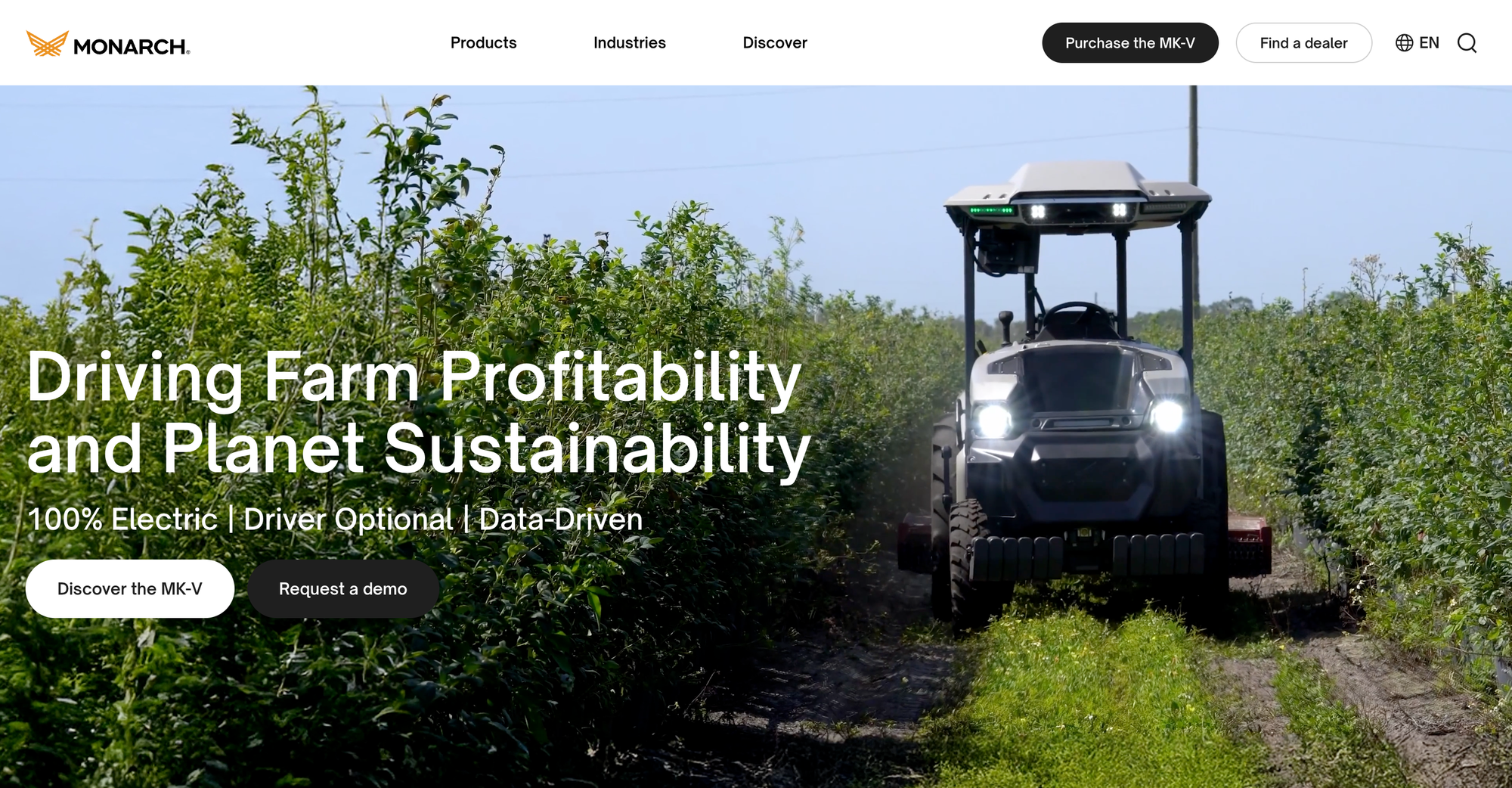
Monarch Tractor is pioneering the future of farming with its fully electric, autonomous smart tractor designed to replace diesel-powered equipment on farms.
Combining robotics, machine learning, and electrification, the Monarch Tractor can operate autonomously, collect real-time crop data, and reduce both labor costs and carbon emissions.
It’s one of the first tractors to integrate driver-optional operation, making it ideal for farms facing labor shortages while also accelerating the shift toward regenerative and climate-smart agriculture.
🔹 Top innovation: The world’s first fully electric, autonomous tractor with real-time data collection and zero tailpipe emissions.
Open Bionics – Affordable Bionic Arms Turning Disability into “Superpower”
Headquarters: Bristol, United Kingdom
Founded: 2014
Impact Focus: Healthcare & accessibility, prosthetics for amputees
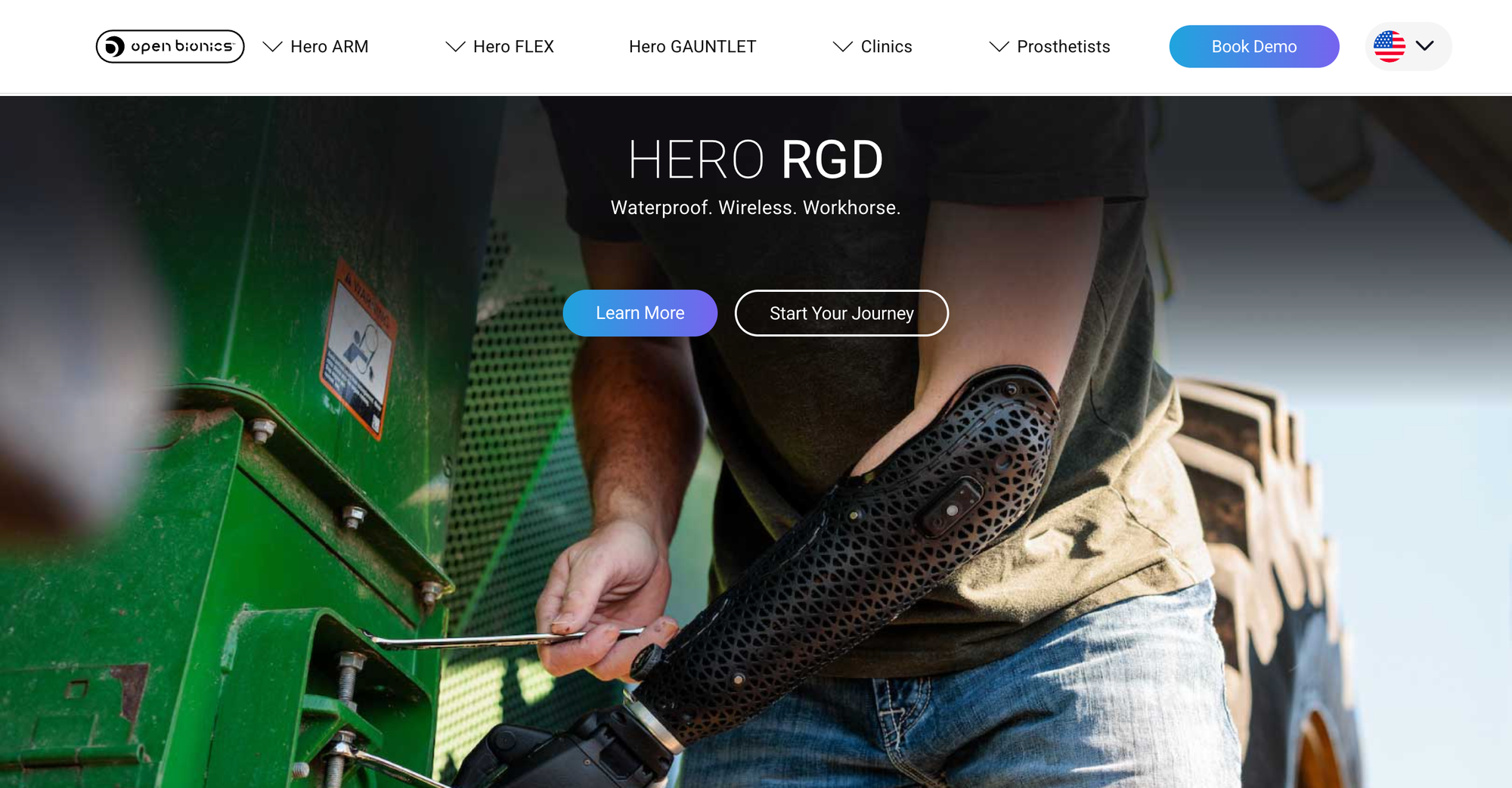
Open Bionics is on a mission to “turn disabilities into superpowers” by developing advanced yet affordable bionic limbs. The startup’s flagship product, the Hero Arm, is a lightweight 3D-printed bionic arm (prosthetic) for below-elbow amputees that offers multi-grip functionality and customizable aesthetics.
Unlike traditional myoelectric prosthetics which can be prohibitively expensive (often $20K–$100K) and heavy, the Hero Arm is produced with low-cost techniques and sells at a fraction of the cost – making it the only advanced bionic hand affordable enough to be covered by national healthcare systems in countries like the UK, France, Germany, and the U.S.
Over the past few years, the Hero Arm has become the best-selling multi-grip bionic hand in the UK, and the company is expanding to more countries (it entered the U.S. market recently).
The impact on individual lives is tremendous – users report greater independence in daily activities and a boost in self-esteem from the device’s sleek design.
y drastically lowering cost barriers, Open Bionics is democratizing prosthetic technology and showing that bionic limbs can be both functional and aspirational.
As the technology advances (they’re developing wrist rotation, sensory feedback, etc.), thousands more amputees could benefit, truly turning a physical loss into a tech-augmented strength.
🔹 Top innovation: The Hero Arm—a multi-grip, 3D-printed bionic arm that's affordable and available for children as young as 8.
Intuition Robotics – AI Companion Robots Fighting Senior Loneliness
Headquarters: Ramat Gan, Israel (with offices in California, USA)
Founded: 2016
Impact Focus: Social isolation, elder care, mental wellness
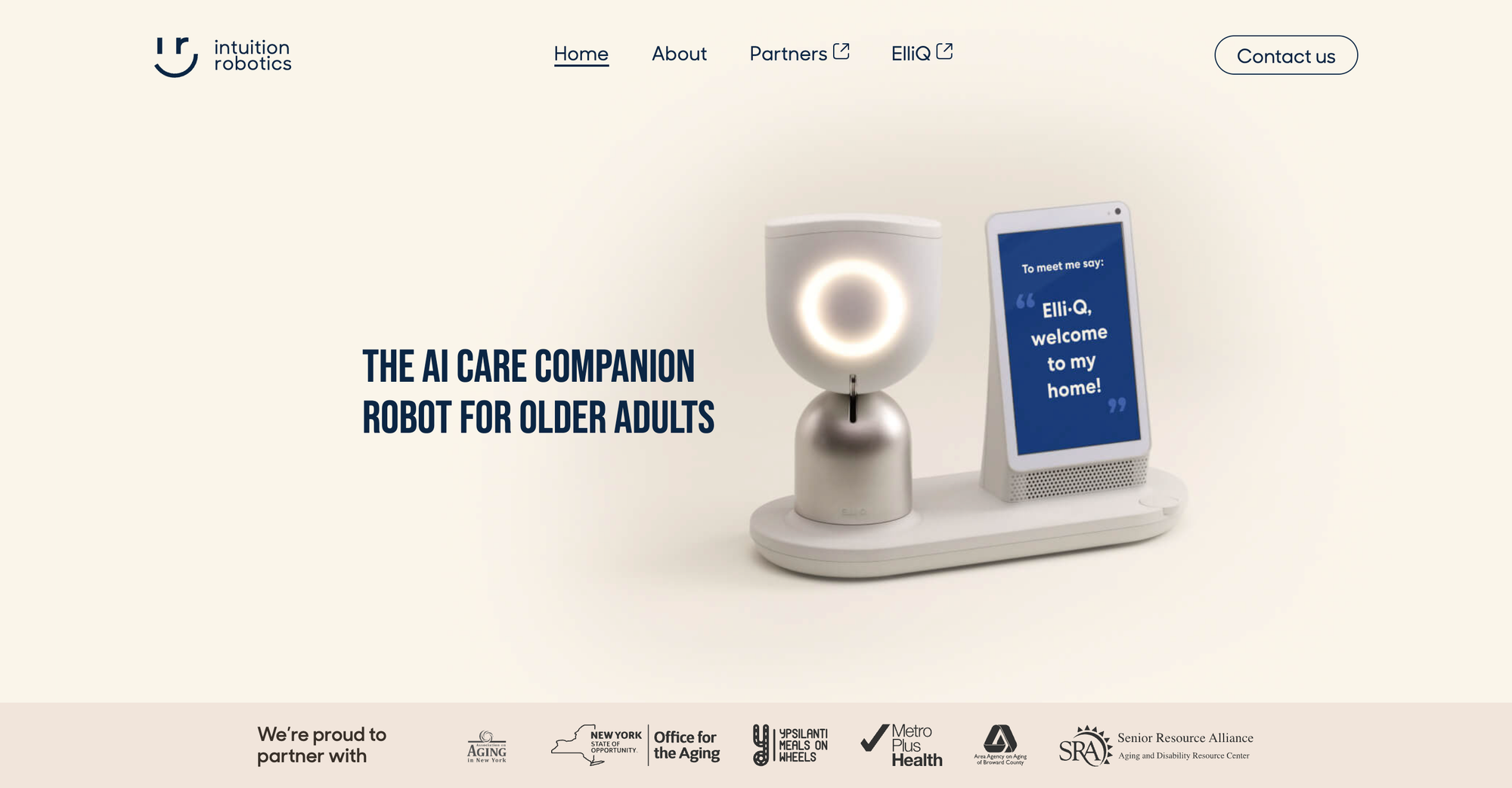
Intuition Robotics is the creator of ElliQ, an AI-driven robotic companion designed expressly for older adults. ElliQ sits on a side table like a smart lamp, with a friendly animating light and a screen, and proactively engages seniors in conversation, health coaching, and entertainment.
The core idea is to alleviate loneliness and support independent living for the elderly – a growing social issue as millions of seniors live alone. ElliQ uses AI to build a relationship with the user: it remembers personal details, suggests activities (like going for a walk or doing a breathing exercise), offers medication reminders, and can even tell jokes or play trivia.
Crucially, ElliQ is proactive – it initiates interactions in a natural, empathetic manner, rather than waiting for commands.
A recent pilot in New York State provided ElliQ units to over 800 seniors, and the results were remarkable: participants experienced a 95% reduction in loneliness and significant improvements in well-being.
These older adults interacted with ElliQ on average 30+ times a day, almost daily, indicating high engagement and trust in the robot.
By helping users stay mentally and socially active (ElliQ might encourage listening to music, practicing memory games, or video-calling family), the system also supports physical health and cognitive function.
Intuition Robotics’ work has been recognized by organizations like AARP and the New York State Office for the Aging as a breakthrough in combating senior isolation.
The wider implication is that companion robots could become a standard part of elder care – providing companionship, monitoring health needs, and connecting seniors to services, all while allowing them to maintain independence.
ElliQ’s success so far shows how empathetic AI and robotics can genuinely improve quality of life for older people, addressing not just medical needs but the critical emotional aspects of aging.
🔹 Top innovation: ‘ElliQ,’ an AI-driven companion robot proactively engaging seniors to reduce loneliness and support wellness.
ANYbotics – Four-Legged Robots Keeping Humans Safe in Hazardous Jobs
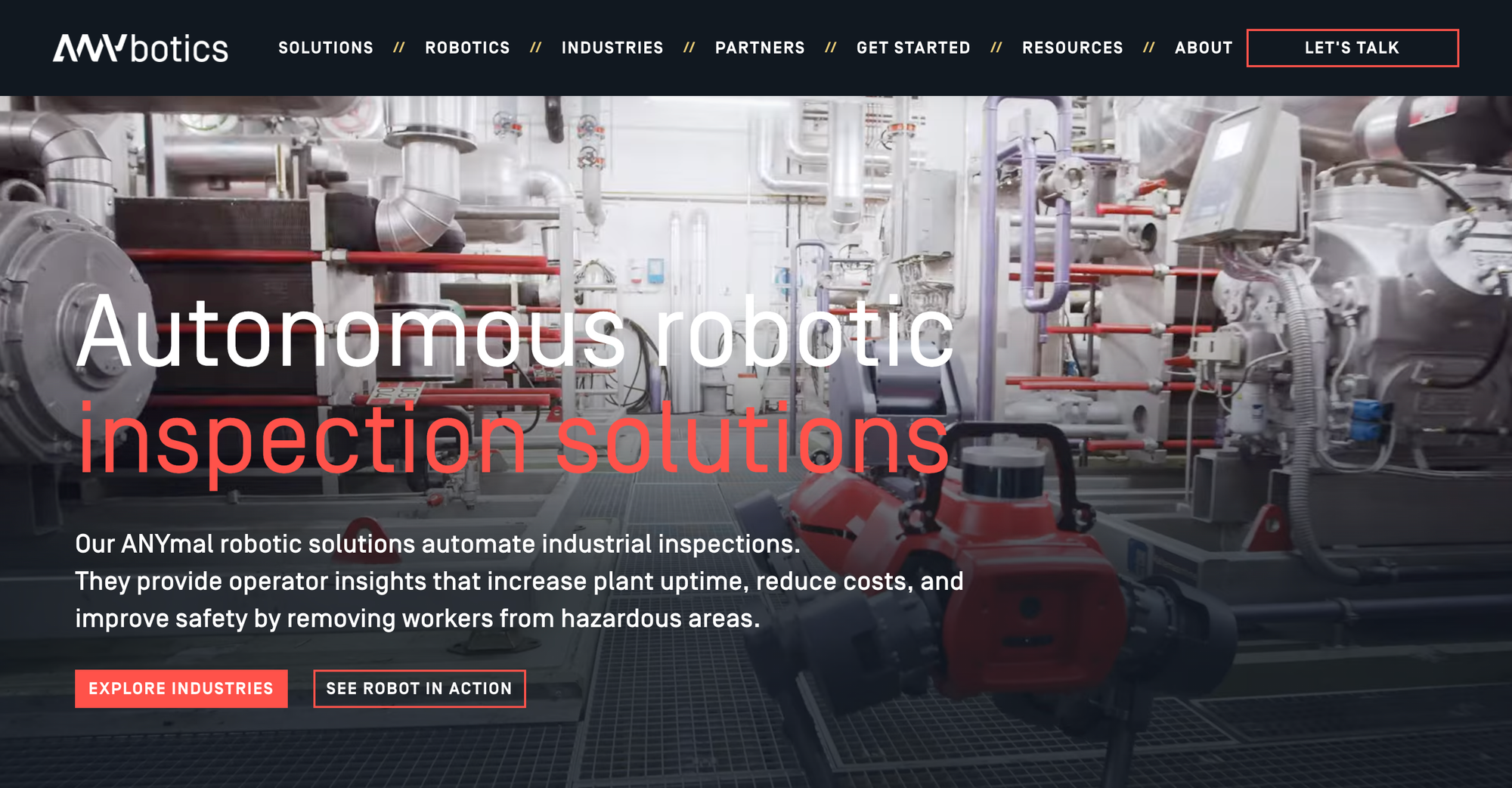
Headquarters: Zürich, Switzerland
Founded: 2016 (as a spin-off from ETH Zurich)
Impact Focus: Worker safety, industrial inspection, hazardous environments
ANYbotics builds quadrupedal robots – think “robot dogs” – that can autonomously inspect industrial facilities such as oil & gas plants, chemical factories, mines, and power stations.
These environments often contain hazardous areas (toxic gases, high heat, explosive atmospheres, etc.) or are simply tedious for humans to patrol frequently.
The company’s robot, ANYmal, is a four-legged machine equipped with cameras, sensors (like gas detectors, thermal cameras, lidar), and even manipulation capabilities, allowing it to climb stairs, walk over obstacles, and read gauges or turn valves.
The impact is making industrial workplaces safer and more efficient: ANYmal can perform routine inspections or detect anomalies without putting human inspectors in harm’s way.
For example, it can monitor pressure gauges in a remote section of a refinery or listen for air leaks in a gas plant at 3 AM, tasks that otherwise might expose workers to risks or go unchecked for long periods.
The value of this approach has been validated by industry: ANYbotics has secured pre-orders worth $150 million from major energy and manufacturing companies (including Shell, Petronas, BASF, and Siemens) eager to deploy ANYmal robots in their facilities.
By augmenting human maintenance teams, ANYbotics’ robots help prevent accidents, catch problems early (avoiding costly downtime or environmental damage), and improve overall safety compliance.
In a broader sense, they demonstrate how advanced mobile robots can take over “dull, dirty, and dangerous” jobs – keeping people out of harm while ensuring critical infrastructure runs smoothly.
🔹 Top innovation: ‘ANYmal,’ a four-legged autonomous inspection robot built for hazardous industrial environments.









